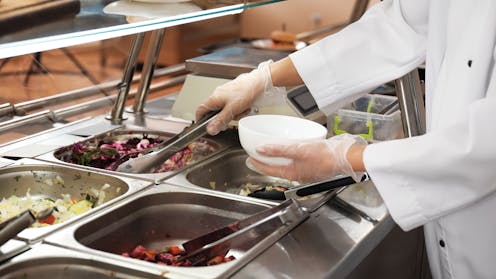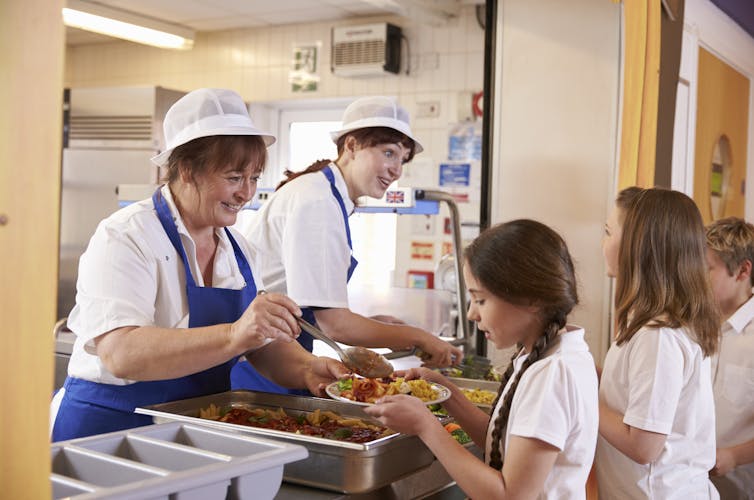
The UK government has announced an expansion of free school meals in England. Starting from September 2026, all children in households receiving universal credit will qualify, removing the previous income cap of £7,400 per year.
This change is expected to benefit more than 500,000 children and lift around 100,000 out of poverty, providing a broader safety net for families.
While this is a positive development, there are unintended consequences, particularly for researchers like us and policymakers who rely on free school meal eligibility as a measure of child poverty.
Under the new rules, eligibility will no longer distinguish between the most disadvantaged children, those in low-income households, or those who receive disability-related benefits. That makes it harder to identify which children are most vulnerable and to target support effectively.
Free school meal eligibility has long been a reliable indicator of poverty for schools and researchers. Without it, it becomes difficult to evaluate the effects of policies aimed at helping the most disadvantaged children.
Wales has already introduced universal free school meals for all primary school children since 2023. Our team is currently researching the effects of free school meals in Wales. We are expecting to publish these findings later this year.

The dilemma
If there is no indicator of poverty, it is hard to evaluate which interventions or policies are working to help lift children out of it. This is particularly important when it comes to areas like nutrition.
For example, concerns about food quality, choices and portion sizes matter far more when a child is experiencing food insecurity at home. Without this information, it is difficult to assess the likelihood that a child will have access to a nutritious meal outside of school, and if free school meals help to alleviate hunger and improve nutrition for the most vulnerable.
The eligibility for free school meals was an indicator of a family living in poverty. This was available to people working in and studying education. It was possible to see how well interventions work to address educational needs, especially for those in low-income households.
The eligibility for universal credit is not available in school data, so it cannot be used to inform how well educational interventions are working to reduce inequality.
Without free school meal eligibility as a poverty marker, schools and researchers must rely on other sources. These are often less straightforward.
Read more: More free school meals is a start – here’s what would really address child poverty
Finding other sources of information about poverty means that people working in education and child health need to work with data experts. This needs teams of people, more time, expertise, approvals and governance agreements to access and combine data to do research on education and child health. This makes the prospect far more complicated.
A local-area deprivation index can indicate if a child lives in a poorer neighbourhood but can’t confirm individual family poverty. Census data can be linked to educational records. But the census is only updated every ten years, which makes it less accurate for current needs.
Asking parents directly about income or hardship is possible, but risks stigma and can be resource intensive.
To improve health and education outcomes for children in poverty, free school meals remain vital. But as eligibility rules change, so must our data systems.
A new way of identifying poverty, one that can be integrated into school records, is needed. Without it, policymakers and researchers risk losing sight of who truly needs help and whether current efforts are working.
Michaela James receives funding from ADR Wales and UKRI.
Amy Locke receives funding from a Swansea University Studentship.
Sinead Brophy receives funding from UKRI, NIHR, European Union
This article was originally published on The Conversation. Read the original article.







